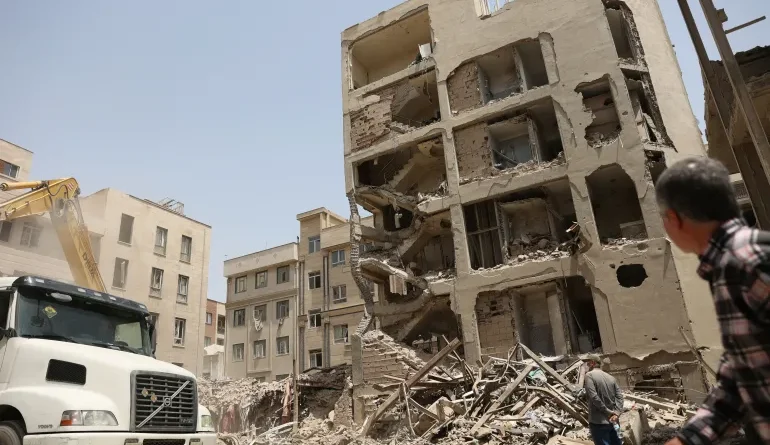Is Israel Planning a Second War on Iran?
Following what it perceives as a highly successful 12-day military engagement last month, Israel’s leadership is now facing a critical strategic question: could the nation be planning a second war on Iran? The previous conflict, though brief, yielded significant outcomes from an Israeli perspective, including the elimination of several high-ranking Iranian military leaders, the degradation of key defensive capabilities, and crucially, the participation of the United States in a decisive raid on the Fordow nuclear enrichment facility. Prime Minister Benjamin Netanyahu, emboldened by these results, has been unequivocal in his stance, emphasizing that Israel remains ready to attack again if necessary and asserting that he has “no intention of easing off the gas pedal.” This posture has led regional analysts and international observers to scrutinize Israeli intentions, assessing whether this rhetoric is mere strategic posturing or a genuine indication of preparations for another, potentially more devastating, offensive aimed at fundamentally altering the Islamic Republic’s power structure.
The core justification for the initial war was presented as a preemptive act of “self-defence” against Iran’s nuclear programme, which Tehran consistently maintains is for peaceful civilian purposes. However, a closer examination of the targets reveals a broader objective; despite the emphasis on nuclear facilities, the campaign primarily focused on assassinating high-ranking government and military officials. This indicates a clear attempt to decapitate the Iranian leadership and destabilize the regime itself. Trita Parsi, an esteemed expert on Iran and co-founder of the Quincy Institute, believes this mission is incomplete in Netanyahu’s view. He argues that the underlying reason Israel wants to attack again is to ensure Iran is transformed into a weakened state, similar to Syria or Lebanon, which Israel can strike at will with impunity. This goal requires a pretext, and analysts point to the looming deadline for a new nuclear deal. By the end of August, European countries, following discussions led by US Secretary of State Marco Rubio, may reimpose debilitating UN Security Council sanctions if no agreement is reached. Such a move could provoke Iran to withdraw from the Nuclear Non-Proliferation Treaty, an act that would provide Israel with the political window it seeks to justify a renewed military campaign.
However, the critical factor in any decision to planning a second war on Iran remains the unequivocal “permission” of the United States. The dynamics of the US-Israel relationship under the Trump administration are complex. While the US participated in the previous raid, there is reported concern in Washington over the escalatory nature of Israel’s broader regional actions, including its strikes in Syria. Meir Javedanfar, an Iran lecturer at Israel’s Reichman University, notes that even with a pretext, Israel would need to present credible intelligence proving Iran is actively rebuilding its nuclear program to gain US assent. In the meantime, reports suggest Israel is maintaining pressure through extensive covert operations within Iran. The New York Times cited officials attributing a series of mysterious explosions and fires at industrial sites, refineries, and apartment complexes to Israeli sabotage efforts. These actions, as analyst Ori Goldberg explains, serve to flex the muscles of a robust intelligence network embedded within Iran, reminding Tehran of its vulnerability and keeping operatives active. For Iran’s part, President Masoud Pezeshkian has expressed doubt over the durability of the current ceasefire, stating the country is “fully prepared for any new Israeli military move.” While the Iranian leadership hopes diplomacy on the nuclear front can reduce the chances of an attack, they are not counting on it. The consensus among experts is that while a full-scale war may not be imminent, the possibility is palpably real. Netanyahu, facing growing internal division over Gaza, may see a popular war with Iran as a unifying force. Therefore, the world watches closely, as the answer to whether Israel is planning a second war on Iran depends on a volatile mix of pretext, permission, and political will.
Go To Main Page

